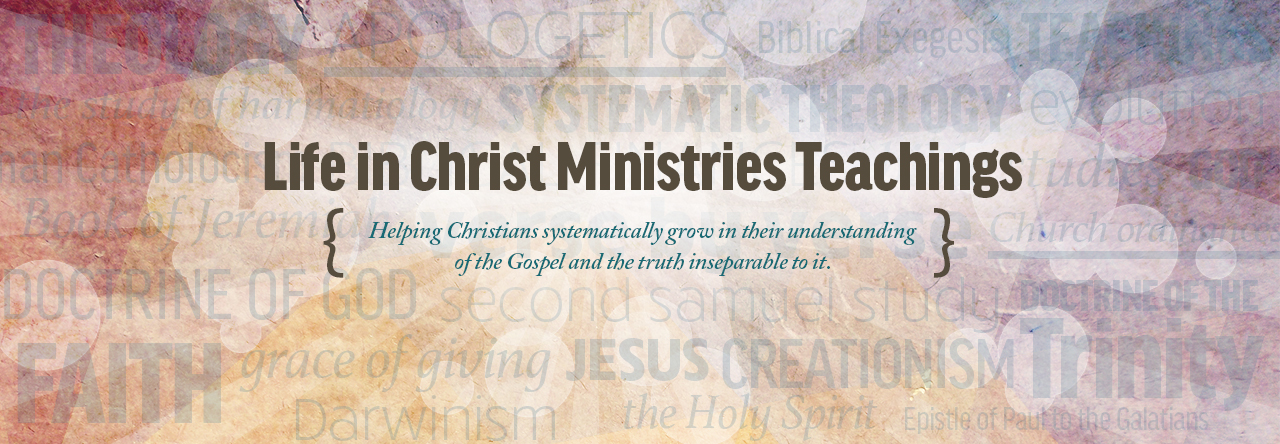Sometimes when wondering where to begin with explaining who God is it is best to simply go to the beginning – of the Bible and of creation. In the opening verse of the Bible we read, “In the beginning God created the heavens and the earth” (Gen. 1:1). The beginning spoken about here was not God’s beginning; God doesn’t have a starting point; He is from everlasting to everlasting (Ps. 90:2; 103:17); and Moses, under the inspiration of the Holy Spirit, felt no need to offer an introductory apologetic for God’s eternal self-existence.
Tag: Genesis (Page 1 of 4)

For this is the message that you heard from the beginning, that we should love one another, not as Cain who was of the wicked one and murdered his brother. And why did he murder him? Because his works were evil and his brother’s righteous. (1 John 3:11-12)
Time and again in his first epistle John pointed his readers back to what they heard from “the beginning”. With false teachers trying to bring in destructive heresies and, most likely claiming new revelation, John repeatedly pointed back to the apostolic message his readers heard from the beginning.

One should approach the opening chapter of Genesis as they would any other portion of the Bible; namely, by trying to understand it within its proper context and in light of other Scriptures. Does the text present itself as straightforward and historical, or poetic and allegorical? With the pervasive advances of naturalistic evolution both inside and outside of the visible church those kinds of questions have become increasingly frequent as it relates to Genesis 1. As a result, many have jettisoned a straightforward reading of the opening chapter of the Bible in order to accommodate evolutionary theory and, in turn, argue that the Bible says something it was never trying to say.

Did Moses expect you and I to disregard the historicity of Genesis 1 by purposefully changing the order of creation in Genesis 2? That is the assumption that Tim Keller believes makes the “strongest argument” that the author of Genesis 1 did not want to be taken literally.[1] The predominant weight of that assumption is placed on his interpretation of Genesis 2:5. The problem isn’t only the assumption; it’s the inevitable conclusions that result from it. One who would have to essentially say that Genesis 2:5 is the reader’s clue that everything said in Genesis 1 that contradicts the ‘natural order’ is to be jettisoned. So even though God created light on Day 1 before He created the sun, moon, and stars on Day 4, that does not mean what is says; and even though God created plant life on Day 3 before He created the sun, moon, and stars on Day 4, that too does not mean what is says. That amount of weight on a contested interpretation of Genesis 2:5 is simply untenable.

There are those who contend that you cannot take Genesis 1 at face value because there are supposed contradictions between Genesis 1 and Genesis 2. Before we consider the arguments behind that contention, something we hope to do in subsequent teachings, it’s worth noting some of the common conclusions that arise from such a proposition: (a) the Scripture is contradictory and therefore not trustworthy, or (b) the inspired writer did not intend to have Genesis 1 read as historical narrative, only chapter two, which shows how God created through ‘natural processes’ as opposed to the six day creation depicted in chapter one. The former conclusion ought to be untenable for a Christian. And the latter is an unnecessary contortion of the intentions of both Genesis 1 and 2. There is no categorical conflict between both chapters and there is no reason to see both chapters as distinct creation accounts. They are not contradictory; rather, they are amazingly complementary.













